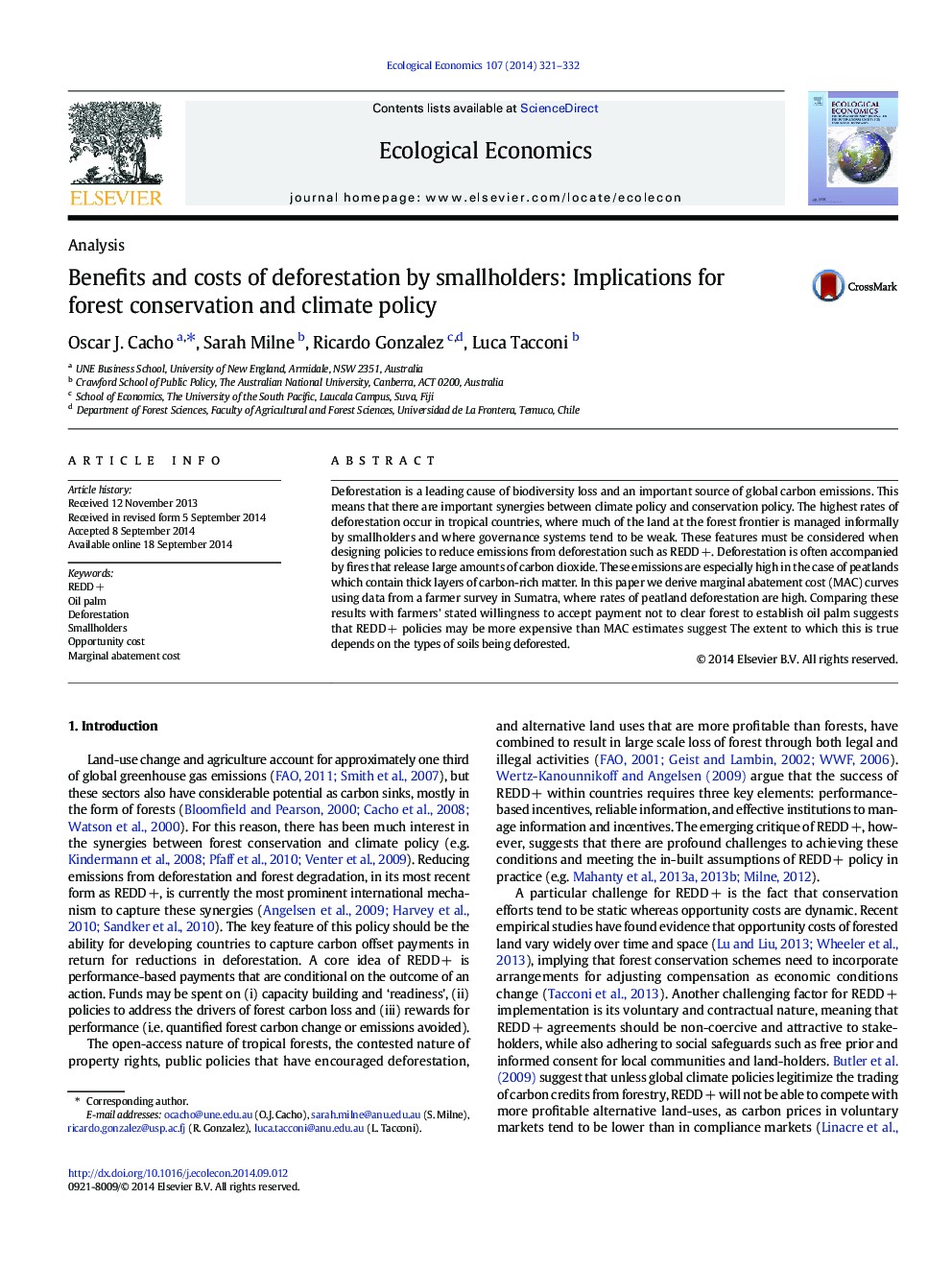| کد مقاله | کد نشریه | سال انتشار | مقاله انگلیسی | نسخه تمام متن |
|---|---|---|---|---|
| 5049526 | 1476372 | 2014 | 12 صفحه PDF | دانلود رایگان |
- Tropical deforestation causes high rates of biodiversity loss and CO2 emissions.
- Much of the land at the forest frontier is managed informally by smallholders.
- Opportunity cost (OC) of avoided deforestation by farmers in Sumatra is estimated.
- Payments requested by these farmers exceed OC estimated from survey data.
- Our results have implications for the design of policies on avoided deforestation.
Deforestation is a leading cause of biodiversity loss and an important source of global carbon emissions. This means that there are important synergies between climate policy and conservation policy. The highest rates of deforestation occur in tropical countries, where much of the land at the forest frontier is managed informally by smallholders and where governance systems tend to be weak. These features must be considered when designing policies to reduce emissions from deforestation such as REDDÂ +. Deforestation is often accompanied by fires that release large amounts of carbon dioxide. These emissions are especially high in the case of peatlands which contain thick layers of carbon-rich matter. In this paper we derive marginal abatement cost (MAC) curves using data from a farmer survey in Sumatra, where rates of peatland deforestation are high. Comparing these results with farmers' stated willingness to accept payment not to clear forest to establish oil palm suggests that REDDÂ + policies may be more expensive than MAC estimates suggest The extent to which this is true depends on the types of soils being deforested.
Journal: Ecological Economics - Volume 107, November 2014, Pages 321-332
